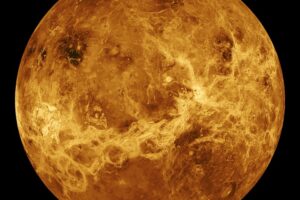One of the central debates in epistemology is the question of whether there are inherent limits to what we can know. Some philosophers, such as Immanuel Kant, argue that there are certain truths that are beyond the reach of human knowledge. Kant believed that knowledge is limited to the realm of experience, and that we can never truly know things as they are in themselves. This idea of “phenomenal” versus “noumenal” knowledge highlights the limitations of human perception and understanding.
On the other hand, skeptics argue that there are no inherent limits to knowledge, and that we can potentially know everything about the world if we have the right tools and methodologies. This optimistic view is exemplified by the scientific method, which aims to uncover the secrets of the universe through observation, experimentation, and rational inquiry. However, even proponents of this view acknowledge that there may be practical limits to our knowledge, as our cognitive abilities and technological tools are finite.
Another important aspect of the limits of knowledge is the problem of skepticism. Skeptics argue that we can never be certain of anything, as our beliefs may be based on faulty reasoning or unreliable senses. This idea challenges the idea that knowledge requires certainty, and suggests that we must always be open to questioning and revising our beliefs in light of new evidence.
In conclusion, the question of the limits of knowledge is a complex and multifaceted one that has engaged philosophers for centuries. While some argue that there are inherent limits to what we can know, others maintain that with the right tools and methodologies, we can potentially know everything. The problem of skepticism further complicates the issue, highlighting the need for humility and openness in our quest for knowledge. Ultimately, the boundaries of epistemology are constantly being pushed and redefined, as we strive to uncover the mysteries of the world around us.1
Epistemology, the branch of philosophy that deals with the nature and scope of human knowledge, has long been a central and foundational area of philosophical inquiry. From ancient Greek philosophers like Plato and Aristotle to modern thinkers like Descartes and Kant, questions about what we can know, how we can know it, and the limits of human knowledge have remained at the forefront of philosophical discourse.
One of the fundamental questions in epistemology is the extent to which human knowledge is limited. Are there things that we can never truly know or understand? Are there limits to what we can discover through reason, observation, and experience? These are challenging questions that have been debated and discussed for centuries.
One perspective on the limits of knowledge is skepticism, which argues that our knowledge is inherently limited and that we can never be truly certain about anything. Skeptics point to the fallibility of our senses, the limitations of our reasoning abilities, and the possibility of deception and error as reasons why we can never have complete and absolute knowledge.
Another perspective on the limits of knowledge is empiricism, which holds that all knowledge is ultimately derived from sensory experience. According to empiricists, our knowledge is limited by the scope of our sensory perception and the reliability of our experiences. This raises questions about the existence of truths that are beyond our ability to perceive or experience.
Yet another perspective on the limits of knowledge is found in the philosophy of language, which explores how our understanding of the world is shaped and constrained by our use of language. Language is a powerful tool for communication and expression, but it also introduces limitations in terms of the concepts and categories that we use to make sense of the world.
Ultimately, the question of the limits of knowledge is a complex and multifaceted one that raises deep philosophical issues about the nature of reality, the reliability of our cognitive faculties, and the boundaries of human understanding. While there may never be a definitive answer to these questions, exploring the boundaries of epistemology can help us to better understand the nature and scope of our knowledge, and to appreciate the complexities and challenges that come with seeking to know and understand the world around us.





























Add Comment